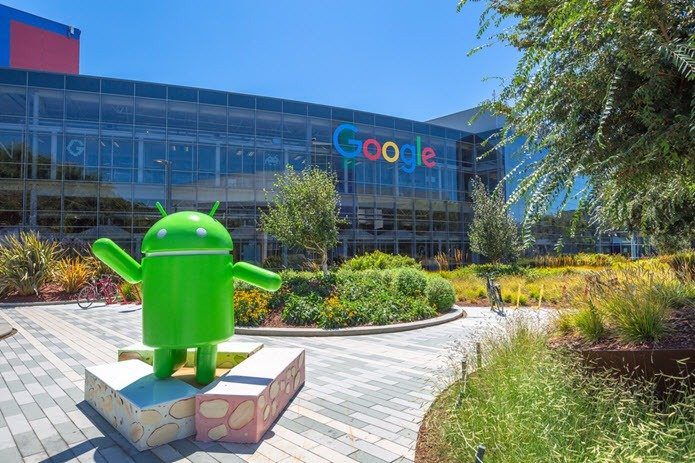It was a huge day for Apple fans and the tech community. Let’s get into the details of every major announcement at WWDC 2017 and the impact of these new products in the months ahead.
macOS High Sierra
First there was the Snow Leopard to Leopard, then Mountain Lion to Lion, and here we have High Sierra to Sierra. This release is all about refinements and new technologies across the board. There are almost no major new consumer features in macOS High Sierra. It’s not necessarily a bad thing. While I would have liked to see a few additions, I’m happy Apple is taking some time off to improve stability on the Mac. The big news is the adoption of the Apple File System. Most users won’t know at all what this is, but they’ll feel it. It’s based off of an entirely 64-bit architecture and designed to be not only safer, but way faster with handling files. WWDC 2017 was big on announcements related to graphics too. High Sierra moves to HEVC (read: H265) video as the standard which offers 40 percent better compression. It also includes Metal 2 for developers and adds several layers of support for virtual reality. On the end user side of things, Photos gets pretty decent improvements to its facial recognition, organization, and editing tools. Safari also blocks autoplay videos and automatically enables Reader for articles to help streamline the web a bit. Notes has tables, FaceTime has Live Photo support for capturing moments, and iCloud supports shared family storage. High Sierra overall is far from a feature release, but it should feel smoother and more robust.
watchOS & tvOS
watchOS 4 brings great new exercise features like high-intensity interval training and integration with workout machines to wirelessly provide data to the Watch. Plus, watchOS 4 will automatically start playing the playlist of your choice when you begin a workout and even improved the UI of the Music app too. Yes, there are some new Watch faces this time around too: a kaleidoscope, Woody, Jessie, and Buzz Lightyear from Toy Story, and the new Siri Watch face. The latter automatically populates with intelligent cards that recognizes what you might want to do at certain times of the day. This could include reminders, calendar appointments, workouts, weather reports, traffic, and so on.
iOS 11
iOS 11 as you can imagine was the star of the show as it is every year. The release is especially good news for iPad users who have been longing for a software update that would elevate the iPad’s capabilities and put it more on par with a Mac. iOS 11 adds system-wide drag-and-drop to the iPad, a redesigned multitasking layout, a Dock reminiscent of the Mac, and new markup features for Apple Pencil users. iOS 11 also heavily supports augmented reality and comes with ARKit for developers, which was showcased largely on the iPad. Other than that, iOS 11 is mostly about lots of little new features across the board rather than anything huge. You can send payments with Apple Pay to friends in iMessage, create looping Live Photos, add new filters and edits to photos, ask Siri to translate something or play music you might like, get more personalized recommendations in News, see what friends are listening to in Apple Music and more. The two larger redesigns come to the App Store and Control Center. The App Store has gotten a complete overhaul. The focus is far less on app icons, and it seems Apple would much rather tell stories about apps. The new Today view highlights great new and recommended apps in a card view, plus offers tips and behind-the-scenes looks at them. The store is also now split between apps and games. Control Center has a new look that’s receiving mixed reviews. It’s essentially just a random grid of buttons and sliders, but the best news is that it’s customizable. In Settings, you can choose which functions show up in Control Center. Plenty of new options appear like screen recording, Apple TV remote, low power mode, accessibility settings, and more. It’s a welcome addition to the OS for pro users. That’s the bulk of the major announcements in iOS 11. They’re solid, but far from revolutionary. I’m personally pretty bummed about the lack of group FaceTime. Maybe iOS 12 next year will finally deliver.
HomePod
Out of everything Apple announced at WWDC 2017, HomePod is definitely the most unique. It’s a home speaker that directly integrates with your Apple Music subscription to play music throughout a large area with crystal clear sound. Apple promises it’s as quiet as you need it to be or as loud. It has an Apple A8 chip, a six microphone array, seven tweeters, and a high-excursion woofer. The microphones are there to pick up your commands: whether it’s playback control, volume control, or of course Siri commands. Yep, HomePod understands just about any Siri request you throw at it. It’ll look up information for you, control your HomeKit accessories, and access Apple Music recommendations. The mics are loud enough to hear you from across the room too. HomePod won’t be available until December and it’ll cost a pretty hefty $349.
iPad Pro
The iPad Pro finally saw a second generation today. It comes in the form of a new 10.5-inch iPad Pro. While many thought Apple would ditch the Home button to accommodate smaller bezels, it has stayed. Bezels are still smaller though and the iPad still weighs 1.03 lbs or 469 grams. This new iPad Pro comes with an A10X Fusion chip that promises 30 percent better CPU performance and 40 percent better graphics performance over the previous A9X in the 2016 iPad Pro. It also has a vastly superior display with a 120Hz refresh rate for the first time in a tablet and an impressive 500 nits of brightness. The cameras got a bump too. The backside one features the same awesome f/1.8 12MP shooter in the iPhone 7. The front takes 7MP photos with a f/2.2 aperture. All these hardware features made it into the 12.9-inch iPad Pro too, though oddly that one still isn’t available in a rose gold color. Pricing begins at $649 for 64GB and increases from there all the way to a new 512GB option.
New MacBook Line and iMac Pro
Apple quickly took the time at WWDC 2017 to announce updates for the iMac, MacBook Pro, MacBook and MacBook Air. They all received upgrades to Intel’s new Kaby Lake line of processors. This should provide faster performance and improved battery life. Apple also slashed prices on the 13-inch MacBook Pro down to $1299 and 4K iMac down to $1299. More importantly, Apple unveiled a preview of the new iMac Pro coming in December. It has a new space gray finish on the outside and features amazing, powerful specs on the inside. It can feature up to 18 cores — yes, 18! — Turbo Boost up to 4.5GHz, up to 128GB of memory and 4TB of SSD storage. The display is at 500 nits like the iPad Pro and can show one billion colors. The iMac Pro will start at $4999.
Conclusion for WWDC 2017
Apple had plenty to say today in its two-and-a-half hour WWDC 2017 keynote. It unveiled iOS 11, macOS High Sierra, a new iPad Pro, the new iMac Pro, updates to its MacBook line and iMac, updates to watchOS, and the new HomePod. We’ll see how these products stack up when reviews appear in the coming weeks. You can watch the full keynote on Apple’s website. The above article may contain affiliate links which help support Guiding Tech. However, it does not affect our editorial integrity. The content remains unbiased and authentic.












![]()




